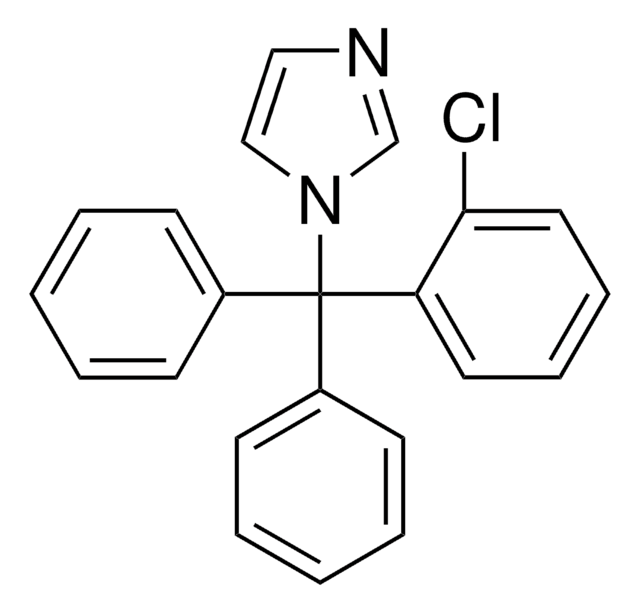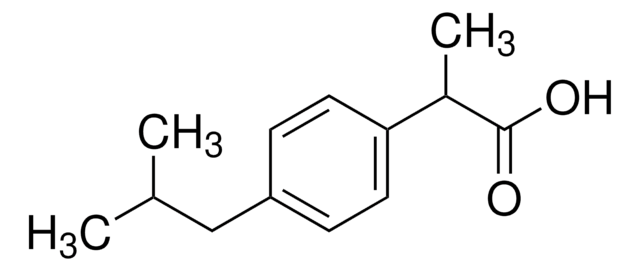1141002
USP
Clotrimazole
United States Pharmacopeia (USP) Reference Standard
Synonym(s):
1-(o-Chloro-α,α-diphenylbenzyl)imidazole, 1-(o-Chlorotrityl)imidazole, 1-[(2-Chlorophenyl)diphenylmethyl]-1H-imidazole
About This Item
Recommended Products
grade
pharmaceutical primary standard
API family
clotrimazole
manufacturer/tradename
USP
application(s)
pharmaceutical (small molecule)
format
neat
SMILES string
Clc1ccccc1C(c2ccccc2)(c3ccccc3)n4ccnc4
InChI
1S/C22H17ClN2/c23-21-14-8-7-13-20(21)22(25-16-15-24-17-25,18-9-3-1-4-10-18)19-11-5-2-6-12-19/h1-17H
InChI key
VNFPBHJOKIVQEB-UHFFFAOYSA-N
Looking for similar products? Visit Product Comparison Guide
General description
Application
- Clotrimazole and Betamethasone Dipropionate Cream
- Clotrimazole Cream
- Clotrimazole Lotion
- Clotrimazole Lozenges
- Clotrimazole Topical Solution
- Clotrimazole Vaginal Inserts
Analysis Note
Other Notes
related product
Signal Word
Warning
Hazard Statements
Precautionary Statements
Hazard Classifications
Acute Tox. 4 Oral - Aquatic Acute 1 - Aquatic Chronic 1 - Eye Irrit. 2 - Skin Irrit. 2
Storage Class Code
11 - Combustible Solids
WGK
WGK 3
Choose from one of the most recent versions:
Certificates of Analysis (COA)
Sorry, we don't have COAs for this product available online at this time.
If you need assistance, please contact Customer Support.
Already Own This Product?
Find documentation for the products that you have recently purchased in the Document Library.
Customers Also Viewed
Our team of scientists has experience in all areas of research including Life Science, Material Science, Chemical Synthesis, Chromatography, Analytical and many others.
Contact Technical Service











